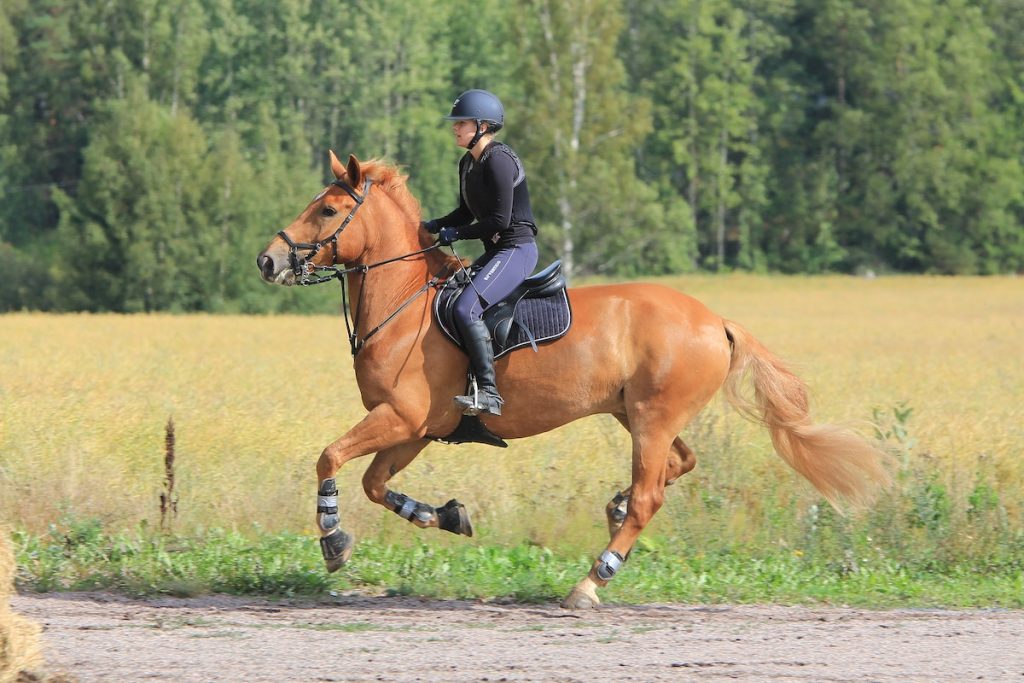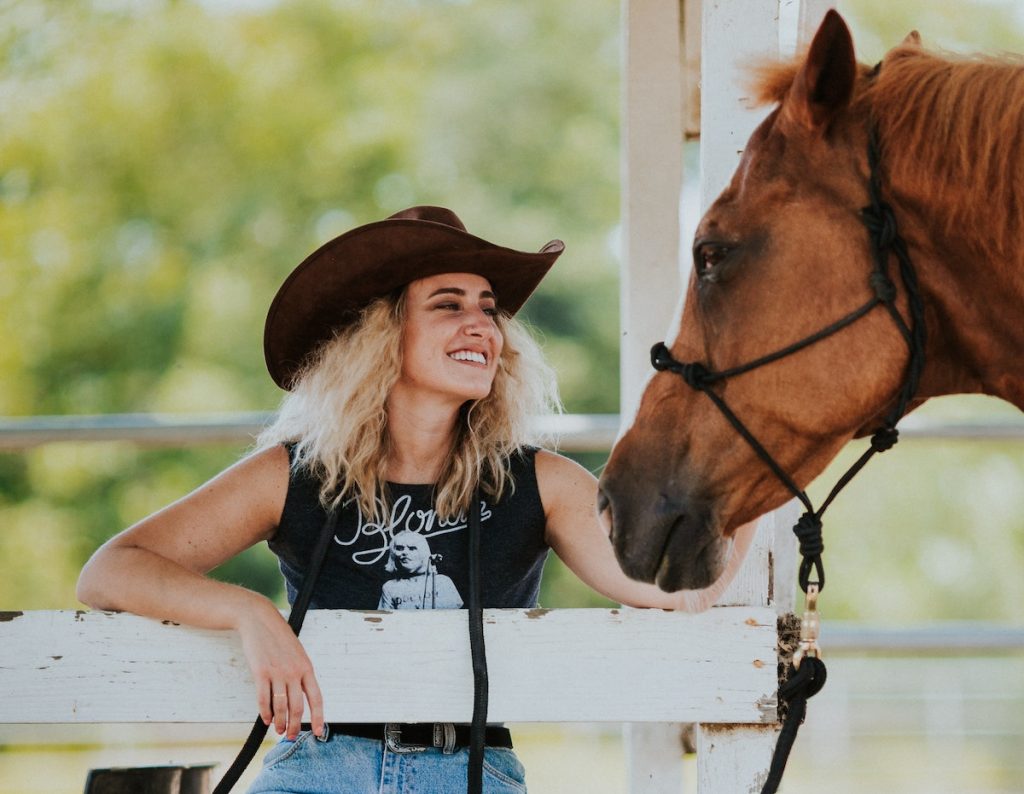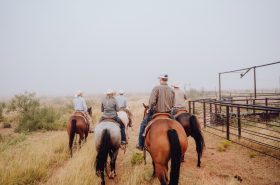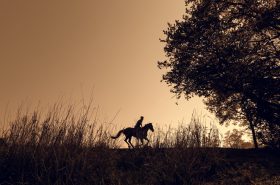Don’t fall into these rookie traps!
Every ride can be seen as a training session. Even a leisurely trail ride requires maneuvering through obstacles. It’s important you become the best rider you can be for your horse. They need a confident and educated person to bring out their true potential. Time and time again, it seems that non-pros make the same newbie mistakes. Here’s your chance to stop and correct them!
Not Getting Properly Prepared
First and foremost, many riders fail to realize the importance of properly fitted tack. Not every saddle is going to fit your horse. In fact, an improperly fitted saddle can hurt your horse’s back and cause them to act out. At the bare minimum, they’ll be stiff and hollow, but many will actually buck or rear from the discomfort. Enlist the help of a saddle fitter or someone skilled in this department. They’ll take tracings of your horse’s back and match it with the perfect saddle.
In addition to the saddle, the rest of your tack should also be properly fitted, including the headstall, bit, breast collar, cinch, and any other equipment that goes on your horse. Be prepared to make adjustments as your horse develops in their training. Many will lose weight or gain muscle, which effects the fit.
While you’re fitting your horse, don’t forget some basics for yourself. It’s advisable that you ride with a good-fitting helmet. Simply put, it can save your life! You should also dress comfortably. This can include jeans, boots with a heel, breathable shirt, and gloves. You’ll be a more effective rider if you come prepared!
Rushing Through Lessons
Some riders are so motivated to get further that they put too many new exercises into a single ride. They want to try X, Y, and Z within one session. First, you should develop a strong foundation. This usually starts on the ground! After you have the basics mastered, then incorporate one new maneuver into your ride. You don’t want to gloss over it!
A side note- don’t take it to the opposite extreme and look for perfection. Spend some time on an exercise, get it to an acceptable level, and then move on to something new. You can revisit the exercise in future rides to improve it.
Letting Your Horse Take Advantage of You
The best of trainers know how important it is to have a respectful horse. Even a small act like snatching a bite of grass on the trail can lead to bigger problems. Don’t let your horse get away with rude behavior like rubbing their head on you, pushing you over, pulling constantly, not focusing, etc. You’re the boss mare in this herd of two!
You can encourage a respectful relationship with your horse by doing lots of groundwork. Many horse owners enjoy natural horsemanship, which communicates with the horse through their language. There are clinics and DVDs you can find to help you along.
Forgetting to Release the Pressure
In training, the release of pressure is considered the reward to the horse. Many rookies end up with a death grip on the reins or their legs. Their horse acts out by tossing their head, backing up, taking off, or just plain ignoring the aids. Some riders do it without even realizing! A good practice to keep in mind is when you apply an aid (or pressure) and your horse responses correctly, then take the pressure off.
A simple example could include pushing on your horse’s shoulder while on the ground. The moment they step away from you and the pressure is the moment you release your hand and stop pushing. Eventually, you should have an ask, tell, and demand system in place.
Riding with an Ineffective Position
Your riding position can greatly influence your horse. Good riders strive to improve their posture and become more effective. A bad position can affect your aids and cause muscle soreness. It will also count against you in the showring. Some tips include keeping your shoulders back, eyes ahead, elbows by your side, heels down, and tailbone tucked under. Many find lounging lessons helpful, in which they can solely focus on themselves and their position.
The best advice you can receive is to keeping learning and striving to be better. We all start somewhere!
Like this blog post? We think you might like A Look at the Classical Pyramid of Training





